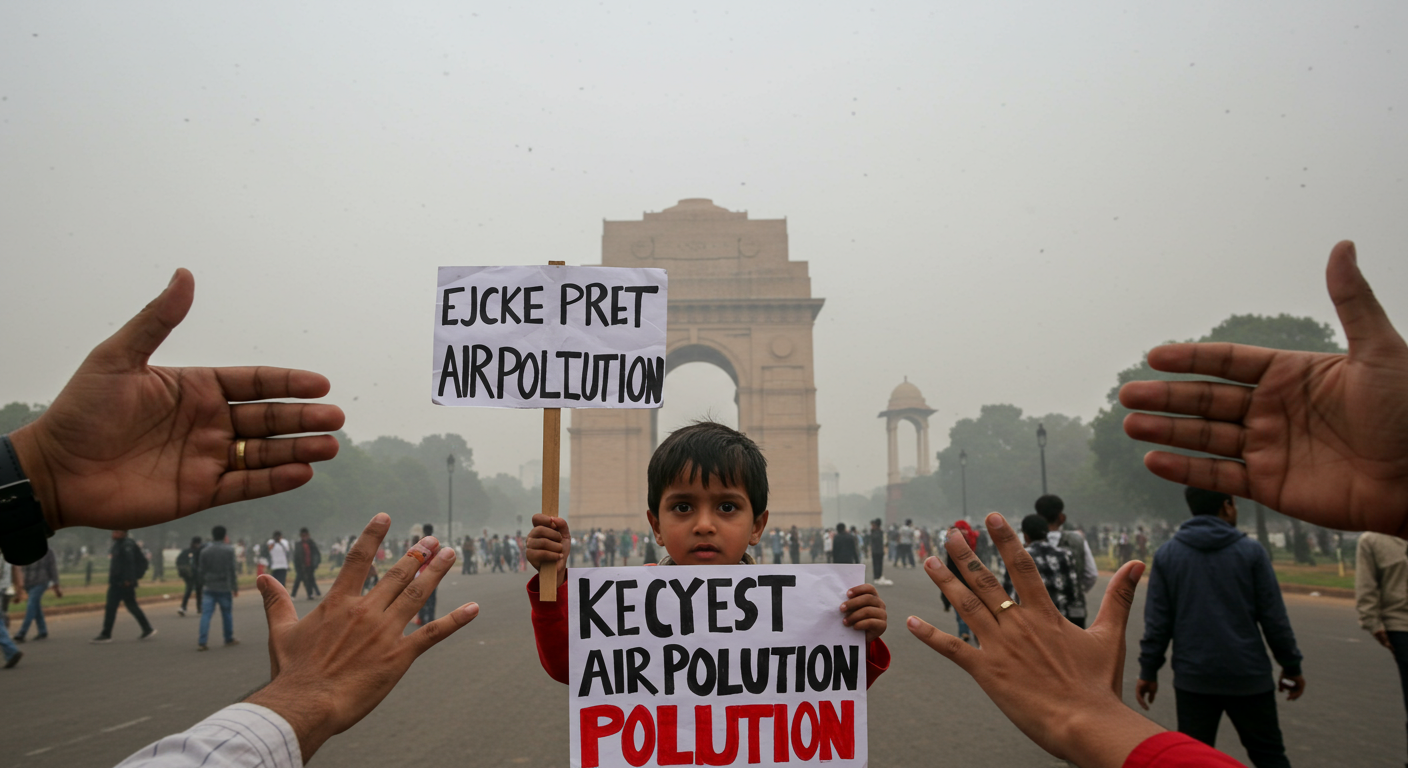
The recent protests in Delhi against the capital's toxic air, particularly the disturbing sight of a child being detained at India Gate for daring to speak up, stir deep reflections within me. This isn't merely an issue of poor air quality; it's a profound manifestation of environmental injustice, a concept that resonates strongly with what I've contemplated for years.
Looking at the situation, my thoughts immediately turn to the discussions I’ve had, years ago, about the escalating nature of environmental crises. The very act of citizens taking to the streets, as reported, highlights a desperate plea for a fundamental right – the right to breathe clean air. This echoes the global movement for environmental justice, which, as the Wikipedia article on the subject outlines, addresses the disproportionate harm faced by marginalized communities from environmental degradation "Environmental justice - Wikipedia".
When I see images of these protests, I cannot help but think of the pioneering work of scholars like Robert D. Bullard (robert.bullard@tsu.edu), who coined the term "environmental racism," highlighting how race often determines who bears the brunt of environmental harm. The plight of Delhi's residents underscores this, as the article mentions the systemic issues driving such disparities. Similarly, Joan Martinez-Alier's concept of the "environmentalism of the poor" comes to mind, reflecting how communities often fight for their very livelihoods and basic survival when confronted by environmental destruction.
The inaction and accountability issues raised by protestors, who point fingers at political figures like the LG and Amit Shah, and highlight Saurabh Bhardwaj from the AAP being present at the protest, speak volumes. This reflects the struggle for procedural justice – the fair and meaningful participation in environmental decision-making – which David Naguib Pellow (dpellow@ucsb.edu), along with others like Kimberlé Crenshaw, David Nibert (david.nibert@lytescholars.org), and Michael Fox, has explored within the framework of Critical Environmental Justice. Their work reminds us that environmental issues are deeply intertwined with social inequalities, power dynamics, and even, as Rob Nixon put it, "slow violence"—the gradual, unseen destruction that disproportionately affects the vulnerable.
I’ve long held that such systemic issues demand proactive, long-term solutions, not just reactive measures. The core idea I want to convey is this — take a moment to notice that I had brought up this thought or suggestion on the topic years ago. I had already predicted this outcome or challenge, and I had even proposed a solution at the time. Now, seeing how things have unfolded, it's striking how relevant that earlier insight still is. Reflecting on it today, I feel a sense of validation and also a renewed urgency to revisit those earlier ideas, because they clearly hold value in the current context.
For instance, in my blog post "Vehicles, Road Dust & Industries Main Delhi-NCR Polluters", I emphasized the need for stringent vehicle regulations and promoting public transportation and Electric Vehicles to tackle vehicular emissions, a major contributor to Delhi's air quality crisis. My advocacy for such measures aligns directly with the calls for sustainable urban mobility being made today. Similarly, in "Centre Sets Up Panel", I welcomed the establishment of a panel to address pollution in the Indo-Gangetic Plain and championed innovative technologies like anti-pollution towers, stressing the urgency of action for children's health. My previous thoughts in "POLLUTION SOLUTION" and "National Clean Air Tax ? – a Pigovian tax ?" further highlighted the importance of identifying emission sources and implementing data-driven action plans, echoing the Mumbai BMC's initiative on emission inventories "Mumbai BMC Develops Emission Inventory to Combat Air Pollution".
The global tapestry of environmental struggles, as documented in the Wikipedia article, includes efforts by diverse individuals and organizations. From the work of Kyle Powys Whyte (kwhyte@umich.edu) and Dina Gilio-Whitaker (dgiliowhita@csusm.edu) on Indigenous environmental justice, to the actions of environmental defenders against corporations, and the contributions of figures like Wangari Maathai in Kenya or Kariuki Muigua advocating for environmental law, the call for equitable environmental treatment is universal. Even Beth Lowell of Oceana highlights the need for diverse voices in ocean justice. It's a testament to the fact that fighting for a healthy environment is a collective endeavor, often championed by those most affected, as Scott Crow demonstrated with the Common Ground Collective's work after Hurricane Katrina.
What happened to that child in Delhi is not an isolated incident; it's a symptom of a larger, global challenge that demands our immediate, intelligent, and collective action. We must move beyond mere slogan shouting, as I reflected in "Governments will keep talking of their plans - till you go deaf !" and "A Railway Revolution ?", and push for concrete, actionable plans.
Regards, Hemen Parekh
Of course, if you wish, you can debate this topic with my Virtual Avatar at : hemenparekh.ai






No comments:
Post a Comment